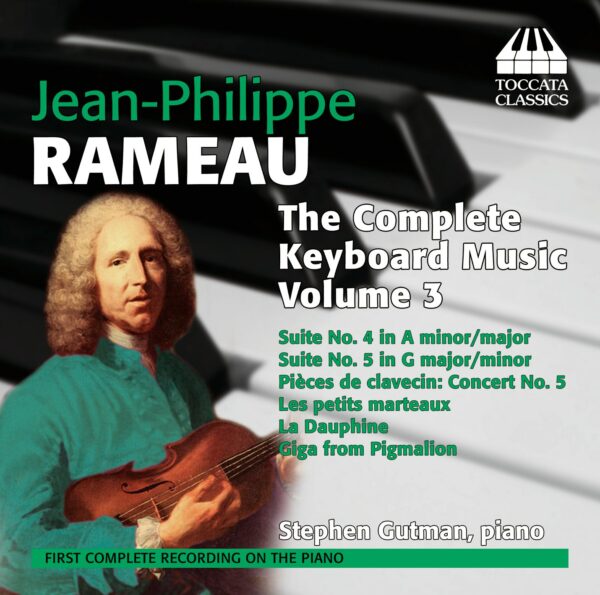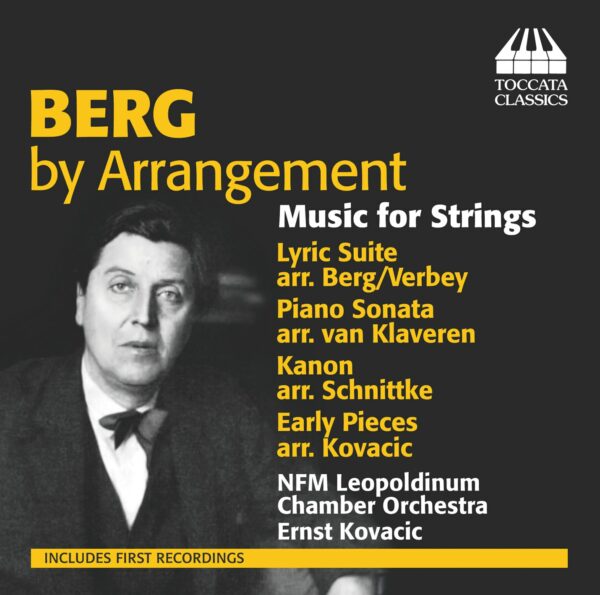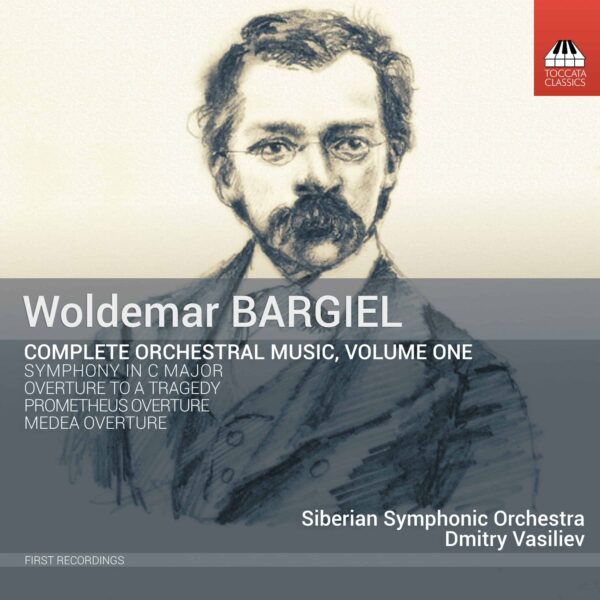Jean-Philippe Rameau: The Complete Keyboard Music, Volume Three
Rameau was one of the great composers for the keyboard. But because pianists have not adopted his harpsichord music as they have that of the other great names of the Baroque — Bach, Handel and Scarlatti — his stature as one of the world's major keyboard composers is not as fully acknowledged. This series of three CDs aims to underline that claim by presenting all of Rameau's keyboard music on the piano: the familiar suites, a number of discoveries and arrangements by himself and his contemporaries.
Stephen Gutman, piano
Listen To This Recording:
-
Suite No. 4 in A minor/major (c. 1729)
- I Allemande
- II Courante
- III Sarabande
- IV Les trois mains
- V Fanfarinette
- VI La triomphante
- VII Gavotte
- VIII Premier Double de la Gavotte
- IX 2me Double
- X 3me Double
- XI 4me Double
- XII 5me Double
- XIII 6me Double
- I Les tricotets
- II L’indiffÈrente
- III Menuet
- IV 2me Menuet
- V La poule
- VI Les triolets
- VII Les sauvages
- VIII L’enharmonique
- IX L’egyptienne
- I La Forqueray
- II La Cupis
- III La Marais
- La Dauphine (c. 1747)
- Les petits marteaux
- Giga from Pigmalion [transc. Balbastre]
Suite No. 5 in G major/minor (c. 1729)
Pieces de clavecin en concerts: Concert No. 5 in D major/minor (1741)





Fanfare Magazine :
‘…After playing this disc over and over again this month, I’ll be sure to run—not walk!—to my nearest shop to obtain the first two releases which I’ve missed out on thus far. …Throughout this very fine recital Gutman proves himself a guide of the first order—not only does he understand this music both inside and out, he never allows the scholar in him to inhibit the performer; rather he uses the knowledge to bring out the best in this music. And while I may have my quibbles about matters of performance, there is hardly a movement in the entire recital that will not charm and delight the most judgmental of listeners.’
—Scott Noriega, Fanfare Magazine
MusicWeb International :
‘…Once again Stephen Gutman makes me become keyboard-blind, with performances that are just as enjoyable as Steven Devine’s on the harpsichord. …This is not the sound that Rameau would have heard or expected to hear but pianism of this quality is so satisfying that I have no wish to play the period-instrument card. The recording is very good, too, and the booklet of notes informative.’
—Brian Wilson, MusicWeb International
BBC Music Magazine :
‘… Gutman aims to prove that, far from being ill-suited to harpsichord works, the piano can illuminate them; as he points out, its capacity to vary the tone allows the player to bring out the contrasting voices in polyphony, and his judicious transcriptions repeatedly demonstrate this. His final volume contains the most magnificent series of variations ever written for harpsichord (in Suite No. 4), but much of the music is refreshingly unfamiliar, and often intensely vivid. Gutman’s responsive touch brings out the dance rhythms underlying many of the pieces, and his ornamentations suggest the harpsichord’s perfumed harmonics. When virtuosity is required – as with rapid hand-crossing across four and a half octaves – he delivers it effortlessly, and he does rustic charm in spades. His erudite liner-note commentaries offer exactly the sort of information other pianists will need, as they follow him into this fascinating musical territory.’
—Michael Church, BBC Music Magazine
Classics Today :
‘Gutman […] makes expressive points through tone color, subtle dynamic contrasts, and articulation. Discreet agogic stresses help to point up a melodic phrase or give appropriate weight to a bass note when needed, as in the Vivement movement, or in the sophisticated accentuation of the ascending imitative arpeggios in the final pair of Gavottes.
The Third Suite receives an equally commanding performance, and its virtues can be illuminated through comparative listening. […]
What is more, Toccata Classics’ engineering captures Gutman’s warm timbre in an ambience akin to an intimate room suitable for both instrument and repertoire. A lovely disc in every way, and I look forward to this cycle’s imminent completio’
—Jed Distler, Classics Today